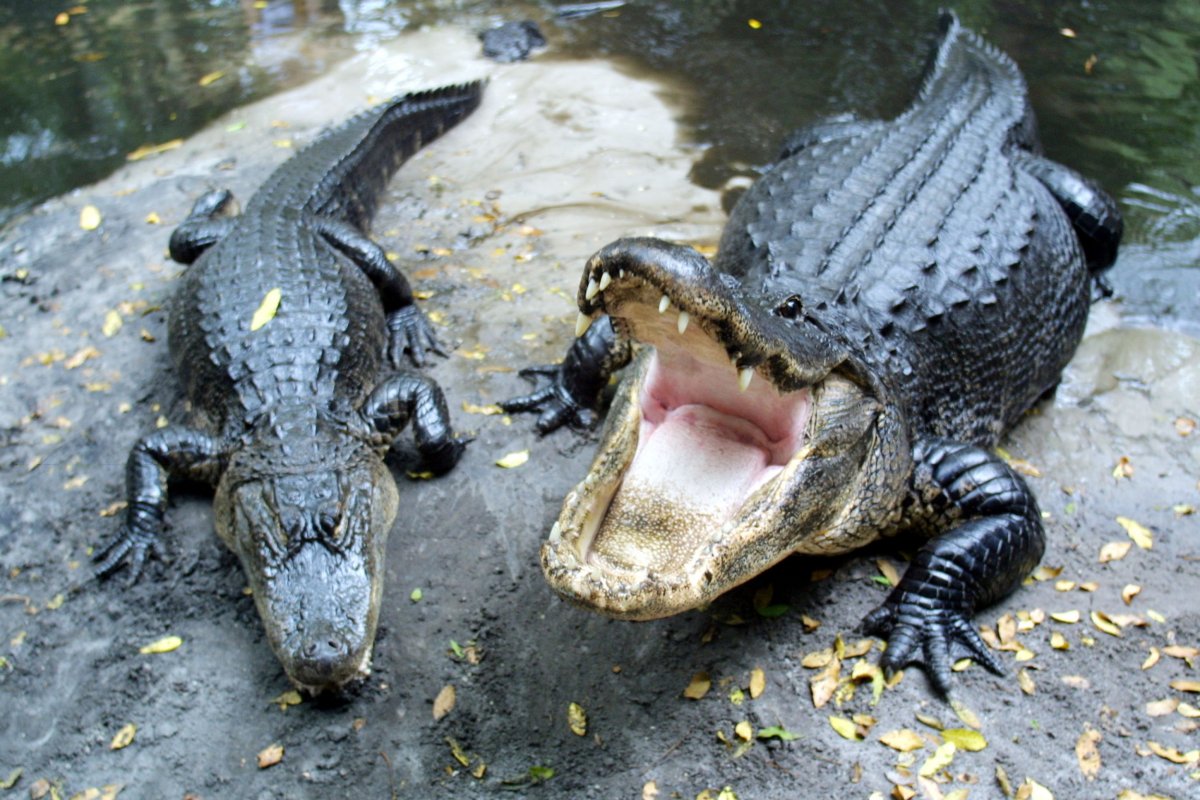Thanks to conservationists, large predators are venturing back to the hunting grounds they dominated before their populations were decimated by humans. The knock-on effects of this, according to a new study, include alligators at the beach, killer whales in rivers and mountain lions in grasslands.
Sightings of predators in areas where they are not generally found have risen in recent years due to successful conservation projects, a new study in the journal Current Biology points out.
In a statement, Brian Silliman, a professor of marine conservation biology at Duke University's Nicholas School of the Environment who led the study, said, "We can no longer chalk up a large alligator on a beach or coral reef as an aberrant sighting. It's not an outlier or short-term blip. It's the old norm, the way it used to be before we pushed these species onto their last legs in hard-to-reach refuges. Now, they are returning."

Alligators have started to recolonize what scientists believe was once their saltwater habitats on the southeast coast of the U.S., and gray wolves have ventured into coastal marine ecosystems, according to the study. Sea otters have expanded their hunting grounds from the northeast Pacific coast into estuarine marshes and sea grasses, while mountain lions hunt in grasslands and orangutans in forests.
Rather than finding new areas to hunt for food, the creatures are revisiting ecosystems their species frequented before their populations were affected by humans. Scientists reached conclusion after assessing data from recent scientific studies and government reports.
Silliman told Newsweek the individual studies suggested that large predators were showing up in areas where they didn't belong. "When you put all the work together, however, you get a surprising and consistent alternative scenario. Most of these large predators are not habitat specialists, as we have been taught for so many years. Indeed, they are generalists."
While large predators being found in a wider variety of habitats may sound unnerving, Silliman said this change in behavior can be beneficial to our own species. He used the example of sea otters returning to an estuary to feed on crabs. This means crabs eat fewer sea slugs, which in turn survive to eat algae, which lives off excess nutrients that enter the water from farms and cities.
"Large predators help stabilize and restore ecosystems," he explained. "Sea otters brought back seagrasses in one of the most polluted estuaries in the U.S., saving tax payers tens of millions of dollars."
"We need to expand our way of thinking from not only managing wildlife by walling it off separately in parks to also managing wildlife while we co-exist with it. It can be done, [and] we have plenty of examples.
"We can co-exist with large predators. We do this all over the world. We do, however, need to change our behavior and management of those large animals to co-exist successfully and avoid conflict," Silliman said.
Keith Somerville, a member of the Durrell Institute of Conservation and Ecology at the University of Kent and a fellow of the Zoological Society of London, agreed that many species, including some predators, are proving to be very adaptable to changing habitats. (He was not involved in the research.)
"The recolonization of areas that have become urban, peri-urban or waterways near heavily populated areas is a continuing phenomenon in many parts of the world," he told Newsweek.
"One should also think of coyotes around Vancouver; leopards on the outskirts of Mumbai, where they have had a positive health role by killing feral dogs and thereby reducing the incidence of rabies; and leopards around the Ngong forest reserve and suburban areas of Nairobi [in Kenya]. There are many examples of wildlife adapting what would once have been thought of as totally hostile environments.
"The downside, over time, will be when recolonizing predators come into conflict with humans," Somerville said.
Uncommon Knowledge
Newsweek is committed to challenging conventional wisdom and finding connections in the search for common ground.
Newsweek is committed to challenging conventional wisdom and finding connections in the search for common ground.
About the writer
Kashmira Gander is Deputy Science Editor at Newsweek. Her interests include health, gender, LGBTQIA+ issues, human rights, subcultures, music, and lifestyle. Her ... Read more
To read how Newsweek uses AI as a newsroom tool, Click here.








